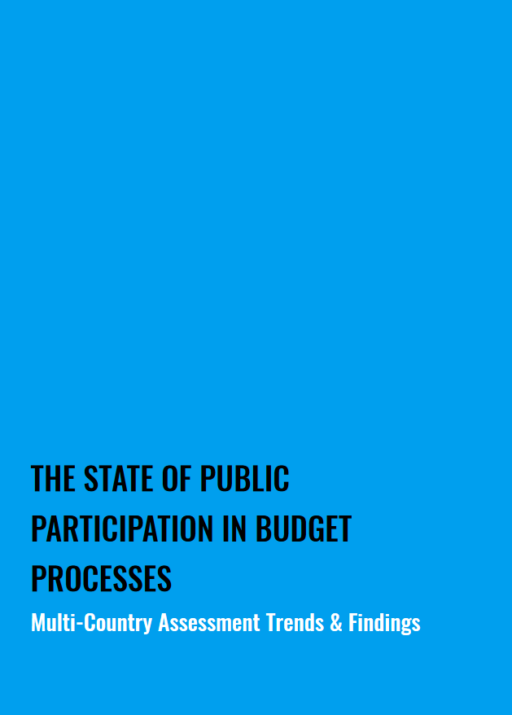- Home
- The State of Public Participation in Budget Processes: Multi-Country Assessment Trends & Findings
The State of Public Participation in Budget Processes: Multi-Country Assessment Trends & Findings
Description
In 2022, under the multi-country, EU-funded Strengthening Accountability Networks Among Civil Society (SANCUS) Project, Transparency International (TI) developed an Assessment Tool to measure the extent to which public institutions provide opportunities for meaningful and inclusive public participation in budget processes.
In addition to assessing key features of a meaningful participatory process, the tool aimed to determine the extent to which a public institution is ready to facilitate such participation. This unique two-pronged approach means that where an institution does not have an established mechanism for the public to participate in budget-related decisions, the first part of the assessment tool can nonetheless be used distinctly to determine whether the institution has, or operates within, suitable conditions to facilitate public engagement.
In 2023, national TI chapters and civil society organisations in 10 countries opted to pilot implementation of the SANCUS Assessment Tool. Through 14 detailed assessments, researchers in Chile, The Gambia, Honduras, Lebanon, Madagascar, Morocco , Palestine, Peru, Rwanda, and Sri Lanka examined and evaluated public participation in budget processes across 14 public institutions.
This report provides an overview of key trends and findings from the 14 pilot assessments of participation in budget processes, implemented at national local-level public institutions across 10 countries. Throughout this report, the 14 distinct assessments, each of which represents a different institution, are used as the primary units of analysis.
The first section of the report illustrates the broad ‘state of public participation’ across the 14 assessed institutions. It identifies overarching trends and some common challenges faced by these institutions, both in terms of fostering enabling conditions for participation as well as in facilitating participation in practice.
The report then examines specific findings across the eight assessment areas, providing a detailed overview of how the assessed institutions perform against select indicators. In doing so, the report also highlights replicable, best practices and key challenges identified through the assessments.
Authors
Anoukh de Soysa
Reviewer:
Matthew Jenkins
Date
01/03/2024
Tags
 Download PDF
Download PDF
